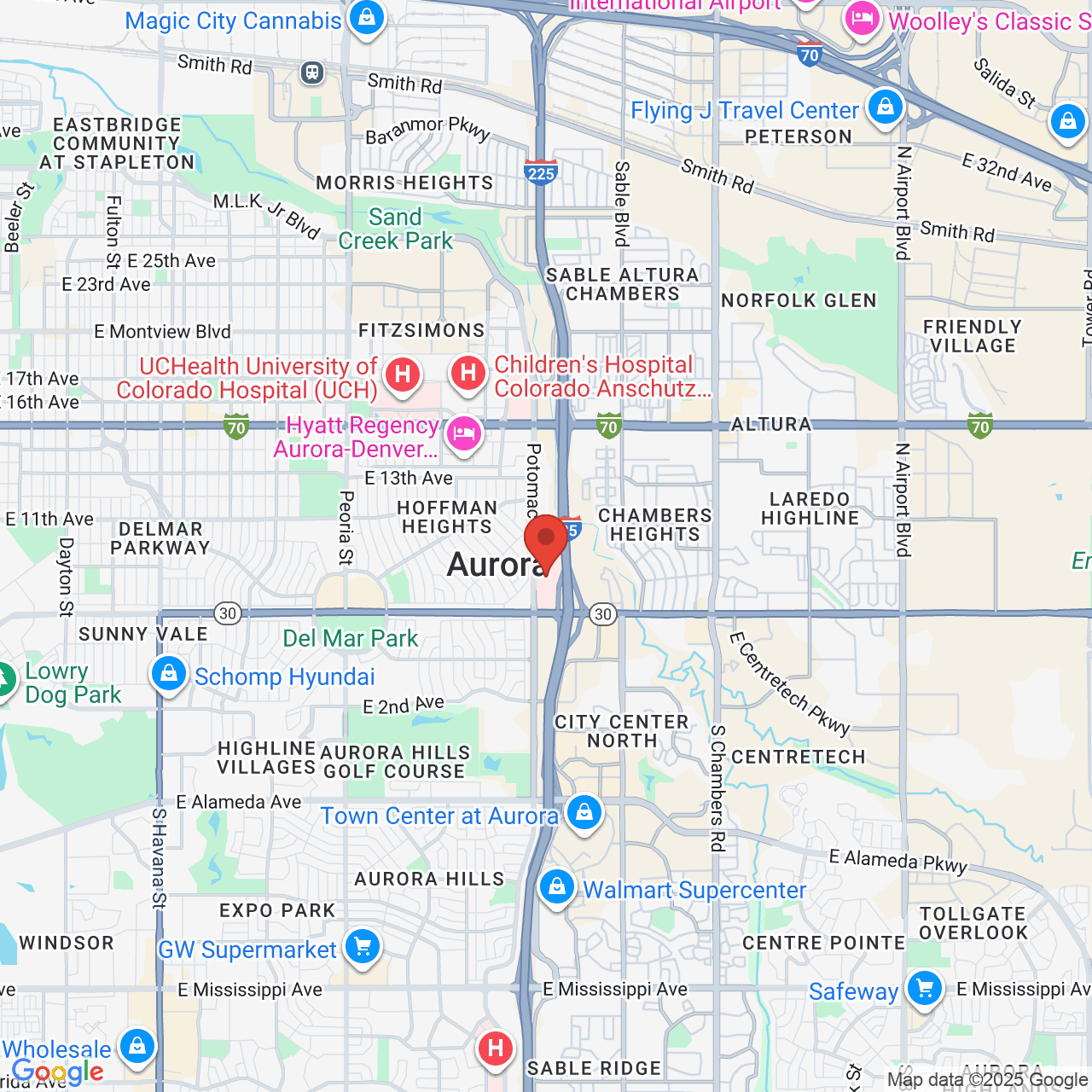
Cataracts
What to Know About Cataracts
Your eyes have a clear lens that helps focus light that enters your retina, allowing you to see things clearly. As you get older, this lens can become cloudy, interfering with your ability to see. Left untreated, cataracts can advance from causing distorted vision to complete blindness.
Patients with early cataracts may only need an updated eyeglasses prescription to see more clearly, but as the disease progresses, cataract surgery may be needed. Cataract surgery corrects cloudiness and other vision issues by replacing the lens in your eye with an intraocular lens. When performed by proven ophthalmology professionals like Dr. James Burcham or Dr. Justin Coco, corrective surgery is safe and effective.
If you are experiencing the symptoms of cataracts, contact Burcham Eyecare Center in Aurora, Colorado, today. The sooner our doctors can examine your eyes, the sooner we can help restore your vision.

Signs That You Need Cataract Surgery
Cataracts can take years to develop, and the symptoms are not always easy to identify. If you regularly experience these symptoms, our optometrists can review your eye health to see if you're a candidate for cataract surgery.
- Blurry Vision
- Sensitivity to Light
- Double Vision
- Growing Difficulty Seeing at Night
- Colors Look Faded
- More Light Required to Read
These symptoms may not be easy to notice at first. Visiting Burcham Eyecare Center in Aurora, Colorado, for routine regular eye exams from our optometrists can help catch the signs of cataracts early before you experience significant vision issues.
Restore Your Sight With Our Aurora Eye Care Specialists
Eyeglasses and contacts can help improve your vision, but they won't stop cataracts from advancing. Removing the damaged lens in your eye and replacing it with an intraocular lens (IOL) will allow you to see clearly again.
Burcham Eyecare Center uses safe, state-of-the-art methods like lasers and ultrasound for our cataract surgeries. To learn more, request an ophthalmology consultation with one of our eye doctors. We'll examine your eyes and review treatment options to help you see clearly again.
Call (303) 340-4600

Praise For Our Aurora Office
"Dr Burcham is always very thorough and explains exam and surgery results in a way understandable to the lay person. His staff is knowledgeable and efficient. I trust they are caring for my eyes as they would their own- that means a lot!" Mya Kay
Risk Factors for Cataracts
Age
As you grow older, your eyes become more susceptible to cataracts and other maladies. If you're 55 or older, Burcham Eyecare Center recommends attending an annual eye exam in order to detect cataracts early.
Injury
Unknown damage from an eye injury can cause cataracts long after you've healed.
Genetics
You are at risk of developing cataracts if your family has a history of developing them.
Tobacco Products
Smoking and tobacco interfere with your body's healing abilities, which can increase your odds of developing cataracts.
Medical Conditions
Obesity, diabetes, and other chronic medical conditions can increase your risk of developing cataracts.
What to Expect During Cataract Surgery
Cataracts are one of the leading causes of blindness in the world. But you don't need to live with cloudy vision, thanks to care from our expert ophthalmologists.
Cataract surgery at our Aurora, Colorado, office has a high success rate and a very low chance of complications.
Recovering From Cataract Surgery
We will give you detailed instructions on how to have a successful healing period. Minor discomfort and itching are common side effects in the first few days. By following the guidance of our doctors, you should have a speedy recovery.
Part of your aftercare from laser cataract surgery will include:
Eye Drops
Prescription eye drops will help prevent infections, address inflammation, and help with discomfort. Be sure to follow the instructions of the prescription eye drops to avoid any complications.
Wear Sunglasses
You need to protect your eyes from bright sunlight when outside. Sunglasses can shield your eyes from damaging sunlight and debris.
Hygiene
You need to remove any discharge from your eye with tissues or cotton balls. Your eyes will be very sensitive after surgery, so it's important to be careful while you're cleaning.
Getting the Most Out of Your Cataract Surgery
After cataract surgery, we recommend scheduling annual eye exams with our doctors. This allows our eye professionals to identify health issues before they cause serious vision problems.
Along with regularly wearing sunglasses to protect from harmful sunlight, we recommend not using tobacco products. Tobacco can interfere with your body's natural ability to heal, increasing the potential for health-related issues. A nutritious diet, especially one that includes leafy greens, can help strengthen your eye health.
Covering the Cost of Treatment
Cataract surgery is covered by Medicare and medical insurance. If you qualify for coverage, our Aurora office will do what we can to maximize your benefits.
To help make treatment more accessible, our Colorado office also accepts CareCredit® financing. This option allows patients to cover the cost of treatment over a series of payments. If you need help navigating financing or verifying that we accept your insurance, our office is happy to help.
More Praise For Our Aurora Office
"The atmosphere and energy is this office is Amazing.
They are fun to be around and Dr. Kesselmen is a Jewel.
Made my appointment enjoyable.
Thanks for Making my day!" Carolyn Lynn Wallin


